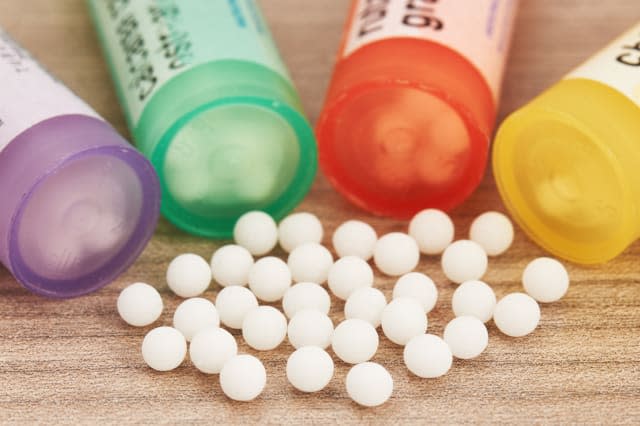Homeopathy branded 'misuse of scarce funds' as NHS seeks to root out waste

Homeopathy and herbal remedies have been branded a "misuse of scarce" funds by the boss of the NHS as the health service looks to make savings on prescription costs.
The NHS has unveiled an expanded list of what it regards as ineffective, over-priced and low-value treatments, the scrapping of which could save more than £190 million a year.
A consultation has been launched on new national guidelines, which state 18 treatments, including homeopathy, travel vaccines and omega-3 fatty acids, should generally not be prescribed.
More than £192,000 a year is spent on herbal treatments and homeopathy, according to NHS England and chief executive Simon Stevens said the remedies were "at best a placebo and a misuse of scarce NHS funds".
Launching the consultation, Mr Stevens said: "The NHS is probably the world's most efficient health service, but like every country there is still waste and inefficiency that we're determined to root out.
"The public rightly expects that the NHS will use every pound wisely, and today we're taking practical action to free up funding to better spend on modern drugs and treatments."
Lidocaine plasters - for back or joint pain - and immediate release fentanyl - a painkiller for cancer patients - are among the items under the spotlight.
The list also includes lutein and antioxidants - such as vitamin A, C, E and zinc - and paracetamol and tramadol used in a single product.
These drugs and treatments are thought to cost the service £141 million per year, NHS England said.
The consultation also covers a further 3,200 products which NHS England say could otherwise be purchased over the counter at pharmacies, petrol stations or convenience stores.
These include cough mixture and cold treatments, eye drops, laxatives, sunscreens and anti-fungal creams.
NHS England said approximately £645 million per annum is spent on such medicines, which are sometimes available at a lower cost than would be incurred by the health service.
The consultation proposes initial action to limit the prescribing of products for minor self-limiting conditions, a practice which currently costs the taxpayer up to £100 million a year.
Sir Bruce Keogh, NHS England medical director, said: "An honest, plain English conversation is required about what we should fund and what we should not.
"We need to end unnecessary expense to give us a bigger therapeutic bang for the NHS buck so we cut the fat and build the therapeutic muscle."
But the Royal Pharmaceutical Society (RPS), while welcoming the plans to stop prescribing homeopathy treatments, expressed concern over the impact on those with low incomes.
RPS England board chair, Sandra Gidley, said: "We would encourage people with minor health problems to self-care with the support of a pharmacist and to buy medicines where appropriate and affordable to the individual.
"However, expecting everyone to pay for medicines for common conditions will further increase health inequalities and worsen the health of patients who cannot afford them.
"A blanket ban on prescribing of items available to buy will not improve individual quality of life or health outcomes in England.
"Those on low incomes will be disproportionately affected. They should not be denied treatment because of an inability to pay."


